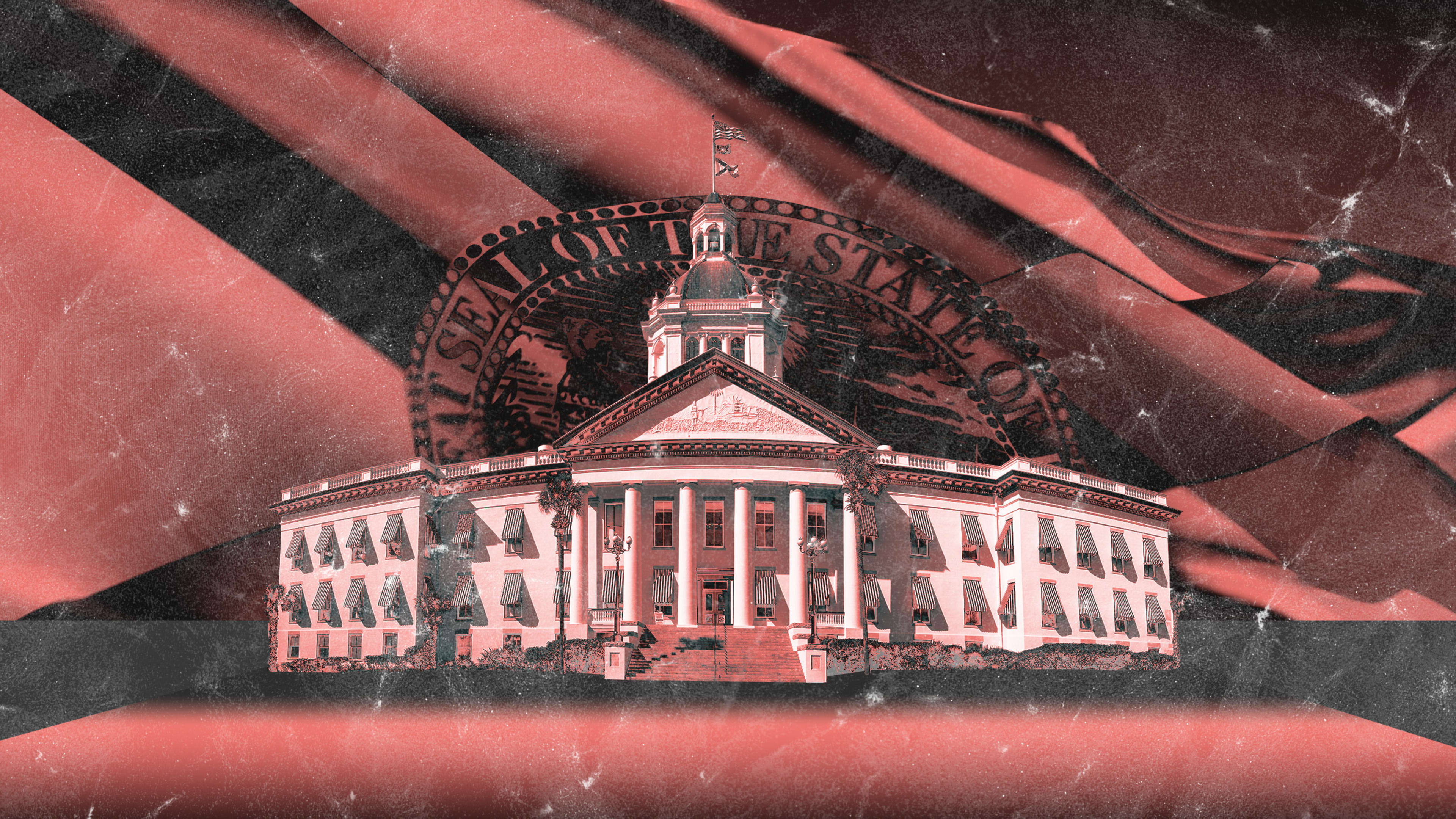In March 2022, Governor Ron DeSantis signed a controversial law that would prohibit Florida’s public schools from teaching about gender identity and sexual orientation. Initially, it applied only to kindergarten through third grade; then, in April of this year, the state expanded it to the entirety of K-12 education. Now, its scope may broaden even further—to the workplace.
During the current legislative break, a freshman Republican state representative has introduced a law similar to the controversial “Don’t Say Gay” education bill, but for Florida’s workplaces. Critics say it could certainly pass in a deep-red statehouse, and would affect not only the lives of LGBTQ+ people, but the work of nonprofits, and the entire economy of Florida.
If passed when the state legislature resumes in January of next year, House Bill 599 would make it illegal for an employer to ask an employee their preferred pronouns. It would also prohibit employees from sharing them at all; at work, they would only be able to go by the pronouns assigned to them at birth.
Penned by Ryan Chamberlin, a fledgling lawmaker who represents a Central Florida district, the proposed bill’s stated purpose is to protect people’s “deeply held religious or biology-based beliefs” in the workplace. It notes that the state’s policy is that sex is an “immutable biological trait,” defined by “the person’s sex chromosomes, naturally occurring sex hormones, and internal and external genitalia present at birth.”
“It’s just another example of continuously attacking the LGBTQ+ community, and doing it for political gain,” says Anna Eskamani, a Democratic state representative in the Orlando area. “It’s such a sad reality that we have politicians who are trying to erase people’s very existence.”
The law is intended for government agency workers. But, as is characteristic of many DeSantis-era bills, it’s vaguely written, and its scope is potentially much larger. It also covers anyone seeking a job with a government agency. And it applies to any contractor who works with the state—which could stray into private territory, and introduce constitutionality questions. “This is a sweeping bill that is not limited to pronouns for state workers,” says Jon Harris Maurer, public policy director for Equality Florida, the state’s largest LGBTQ advocacy organization. “It really has wide-ranging effects.”
A second part of the bill applies directly to nonprofits that receive state government funding, or “any organization that is exempt from taxation.” Those groups would not be able to enforce any workplace training or instruction on “sexual orientation, gender identity, or gender expression.”
That could affect the very work that certain nonprofits do, including those like Equality Florida, whose exact purpose is to prevent discrimination against LGBTQ+ people. “It has the potential to have profound impacts on the human services sector,” Maurer says.
Proponents of the original Don’t Say Gay bill, formally known as the Parental Rights in Education Act, said at the time that it was needed to protect the youngest students from sensitive topics. But its gradual expansion casts doubts on that justification. “This legislation makes clear that it was never about protecting kids,” Maurer says. “It was always about censorship and control.”
Don’t Say Gay was lauded by some on the right, and was part of a string of so-called culture war fights that seemed to help DeSantis win reelection in an increasingly red state. And as the statehouse retains a Republican supermajority, Eskamani says the new bill “absolutely has a path to pass.”
But now, Eskamani says it’s out of touch with what constituents are most concerned about. She says people come to her office to talk about economic issues and Florida’s property insurance crisis: “They’re not coming to us about pronouns.” What’s more, such a bill could add to the economic burden the state has taken by some of DeSantis’ laws, which have driven out academic talent and left Florida struggling to attract business opportunities.
As of yet, no other lawmakers have publicly announced support for the bill, including DeSantis. But if he were to sign such an extreme piece of legislation in an election year, Eskamani says, that could be a risky bet.
Still, as his presidential campaign flails, it’s possible he’ll be tempted by the past successes of his anti-LGBTQ+ laws, which have fired up his far-right base. “Some of his best hits, if you will, have to do with bullying already marginalized people,” she says. “The more that he can look tough in attacking trans people, then that’s positive for his primary to some degree.”
Recognize your brand’s excellence by applying to this year’s Brands That Matter Awards before the final deadline, June 7.
Sign up for Brands That Matter notifications here.
